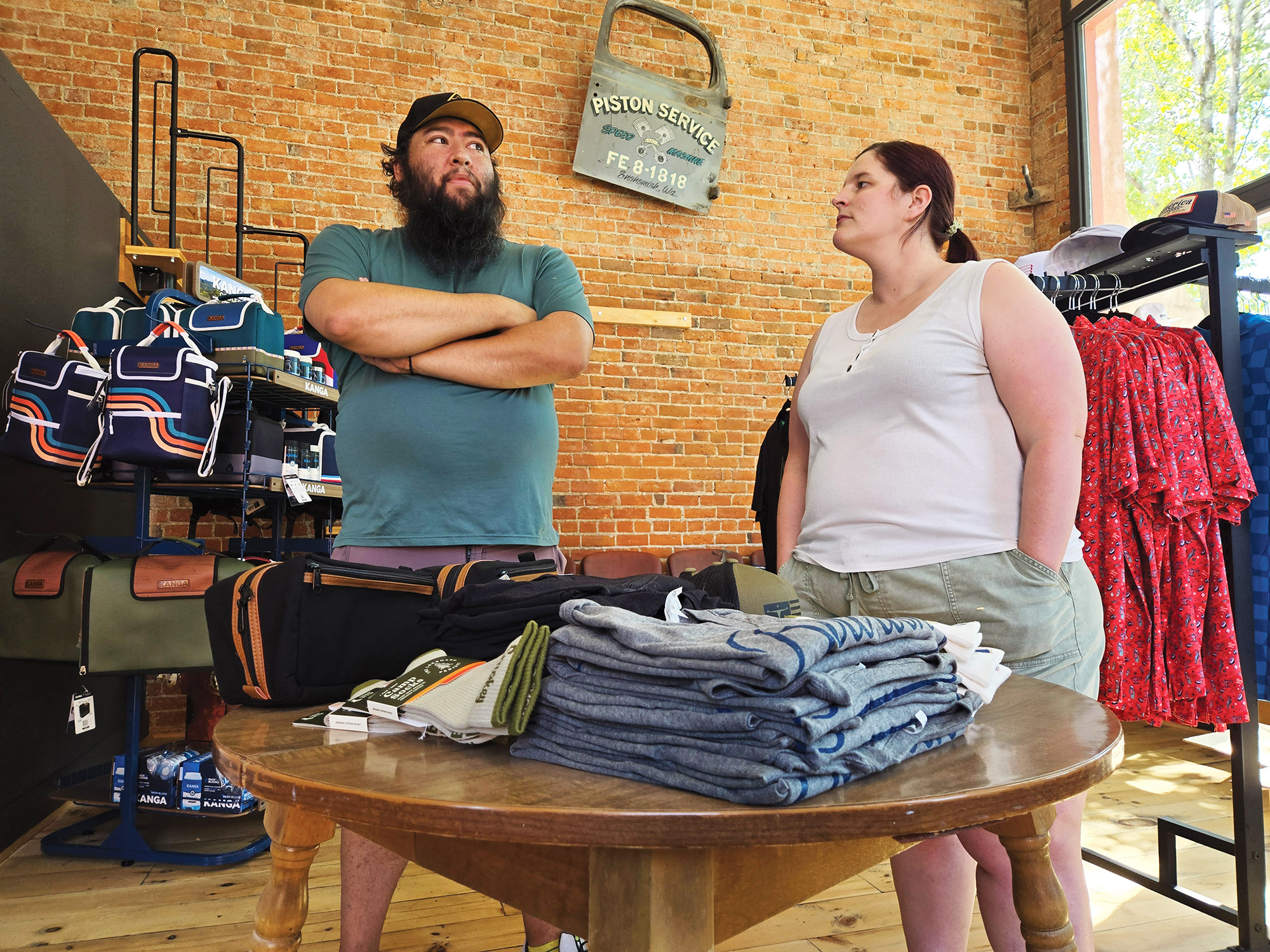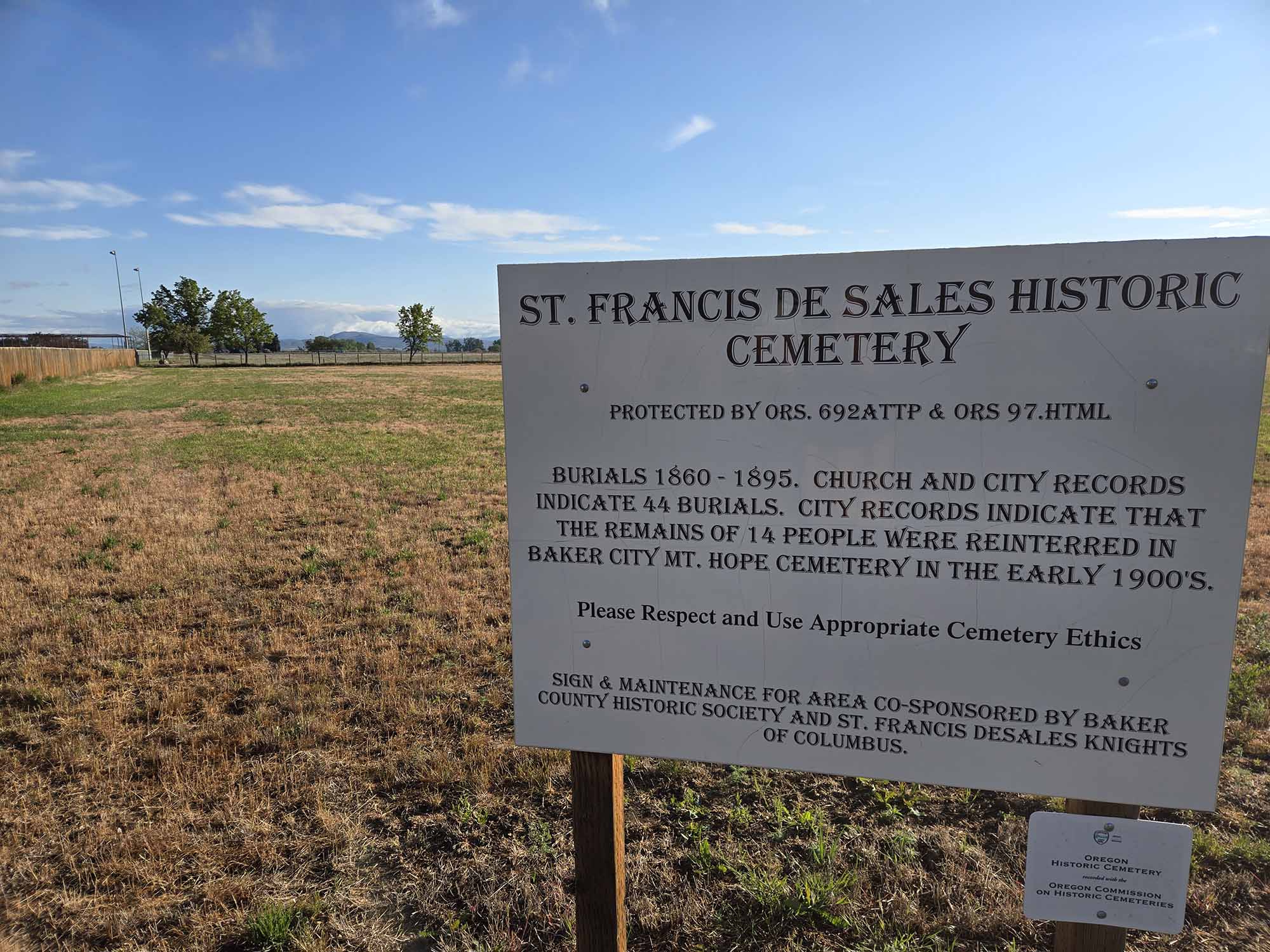COLUMN: Criminal trials and irresponsible politicians
Published 12:45 pm Friday, April 23, 2021
President Joe Biden incurred the wrath of some people earlier this week when he said he was “praying” that the jury in the Derek Chauvin murder trial would reach the “right verdict.”
Trending
Biden’s statement was even more conspicuous than the typical presidential musings because of when he made it.
At that moment, on Tuesday, April 20, the jury was still deliberating.
Biden didn’t utter the word “guilty.” But considering he had phoned George Floyd’s family the day before to sympathize with their situation, it wasn’t exactly a matter of conjecture that the president believed Chauvin had committed the crimes for which he was on trial.
Trending
The jury, of course, concurred.
The president’s comments on Tuesday to reporters in the Oval Office strike me as a trifle strange in their lack of specificity.
“I’m praying the verdict is the right verdict, which is …” Biden paused briefly then continued: “I think it’s overwhelming, in my view.”
Biden went on, as if to defend his decision to make any statement at that time, even a seemingly hedging one: “I wouldn’t say that unless the jury was sequestered now, not hearing me say that.”
The president couldn’t know for certain, though, that the jurors wouldn’t read or hear his statement before they reached a verdict.
“Sequestered” is supposed to mean that jurors are isolated, protected from possible outside influences that aren’t part of the trial.
But as another high-profile criminal trial proved, even a sequestered jury can be exposed to potentially prejudicial comments from politicians.
And that trial happened half a century ago, when communication technology was crude compared with today’s interlocking wifi networks and the immediate, ubiquitous spread of information they make possible.
I watched a fair amount of news coverage of the Chauvin trial verdict, and in particular references to Biden’s statements during the deliberations. I was surprised that none of the commentators, at least among those I sampled, referenced by way of comparison what was, at least until O.J. Simpson stepped into a Los Angeles courtroom in 1995, likely the most publicized criminal trial in U.S. history.
The trial I was thinking of also took place in L.A. The defendants were Charles Manson and three of his murderous acolytes — Susan Atkins, Patricia Krenwinkel and Leslie Van Houten.
They, along with Charles “Tex” Watson, were accused of committing the August 1969 Tate-LaBianca murders. Manson, though he didn’t actually inflict any of the wounds, was the mastermind of the spree and thus equally culpable in a legal sense. The crimes spawned “Helter Skelter,” the best-selling true-crime book co-written by Vincent Bugliosi, who prosecuted the Manson Family.
All were found guilty and sentenced to death, Watson being tried and convicted separately in a later trial.
Their death sentences were commuted to life in prison a year or so later when California temporarily abolished capital punishment. Although all were eligible for parole, none has been released. Atkins died in prison in 2009, Manson in 2017.
I expected to see multiple references to the Manson trial if only because the comparison makes Biden’s comments seem relatively tame. And it seems to me that the national media, generally speaking, are not averse to glossing over his statements that, had they been uttered by a previous president (his immediate predecessor, for instance), likely would have provoked horror, and perhaps tears, among many prominent pundits.
(Biden’s hysterical claim that Georgia’s new election law is worse than Jim Crow laws being a notable example. The outrage over that obnoxious comparison lasted … well, it never really got started.)
Here’s what happened in August 1970 while the Manson trial was underway — this was months before it went to the jury for deliberation:
President Richard Nixon, who like Biden was an attorney, and presumably should have known better, referenced the Manson trial while speaking at a conference of law enforcement officials.
Nixon, whose loathing for the press likely wasn’t surpassed, among presidents, until Donald Trump was elected, talked about the incessant media coverage of the Manson trial. Nixon’s most noteworthy statement was this, referring to Manson:
“Here is a man who was guilty, directly or indirectly, of eight murders. Yet here is a man who, as far as the coverage is concerned, appeared to be a glamorous figure.”
Nixon’s press secretary tried to cover for his boss — this, along with headache-inducing feats of linguistic obfuscation, being the primary tasks of that unpleasant job — noting that the president neglected to include the word “alleged” in his comments.
Nixon himself soon issued a statement that refuted his own earlier words without actually admitting that he fouled up.
Nixon’s gaffe, as I mentioned, is much more inappropriate than Biden’s. The chief difference, of course, is that Nixon spoke while the trial was happening.
Yet I still find the comparison between these two premature presidential proclamations a compelling one — mainly because of Biden’s flimsy attempt at justification based on the jury being sequestered during its deliberations.
Because the controversy over Nixon’s comments didn’t end with his belated semi-apology.
The Manson jury, unlike the Chauvin jury, was sequestered during the trial.
Yet the day after Nixon’s statement, Manson leaped from his seat at the defense table in the courtroom and brandished, directly in front of the jury box, the front page of the Los Angeles Times bearing a headline in inch-high type of the sort usually reserved for moon landings and the beginnings and ends of wars: “Manson Guilty, Nixon Declares.”
The jurors were questioned about what they had seen, and what they thought about the headline.
Several had read the entire headline.
And some of the jurors didn’t appreciate the president presuming to inject his opinions into what was, after all, a matter that was their exclusive bailiwick.
“I think if the president declared that, it was pretty stupid of him,” one juror said.
“Well, my first thought was, ‘that’s ridiculous,’ ” said another.
“No one does my thinking for me,” was a third juror’s response.
I’ve not seen evidence to suggest that any jurors in the Chauvin trial knew of Biden’s comments while they were deliberating.
Certainly Chauvin wasn’t cavorting about the jury room with a newspaper in his hand.
Yet it seems to me that although these two trials, separated by 50 years, are quite different, both illustrate the tendency for politicians to butt into matters before they ought to.
And Biden’s comments were hardly the most inappropriate spoken by a politician this week.
Maxine Waters, a Democratic U.S. representative from the Los Angeles area, said during Chauvin’s trial that were he acquitted, protests should “get more confrontational. We’ve got to stay on the street, and we’ve got to be more active. We’ve got to make sure that they know that we mean business.”
Besides lacking enough respect for the judicial process to even wait for the jury to begin deliberating, as Biden did, Waters also included an implicit threat — make the right decision or you’ll be responsible for more mayhem in the streets of American cities.
Waters also called for Chauvin to be convicted of first-degree murder.
Except he wasn’t even charged with that crime.
Waters’ comments were so egregiously inappropriate that they prompted criticism from Judge Peter Cahill, who presided over Chauvin’s trial. Cahill called Waters’ statements “abhorrent,” and the judge said the comments could lead to the jury’s verdict — unknown at that time — being reversed on appeal.
If nothing else would convince reckless politicians to resist the urge to comment until a jury has finished its work, this episode might.
Just imagine Chauvin, who might spend the rest of his life in prison for killing Floyd, instead being freed, and owing his freedom to Waters.
Strange bedfellows indeed.
Jayson Jacoby is editor of the Baker City Herald.








